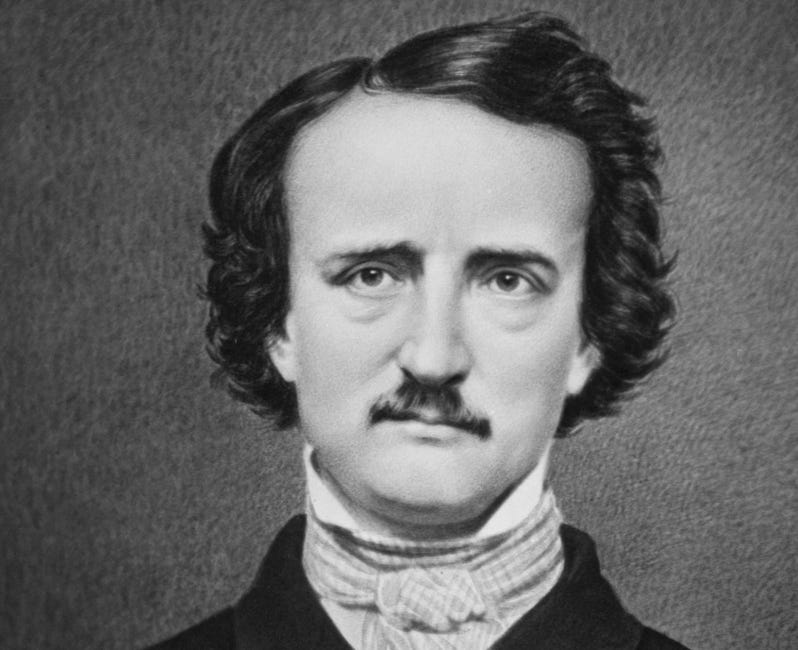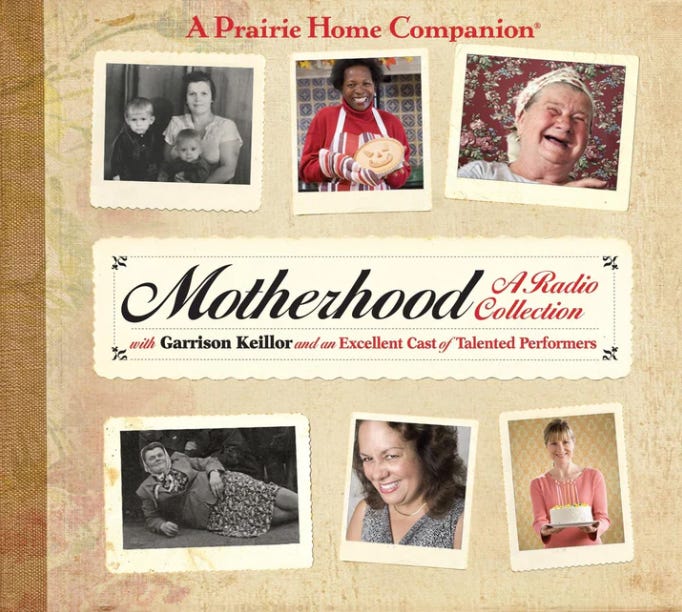TWA for Thursday, January 19, 2016
"A Dream Within a Dream" by Edgar Allan Poe. Public domain.
ORIGINAL TEXT AND AUDIO - 2016
Snow fell in Miami, Florida, on this date in 1977. Two fast-moving arctic fronts slammed into the Florida, and meteorologists braced themselves to deliver the unlikely forecast: a chance of snow. The flakes first started falling in the pre-dawn hours and continued throughout the morning. Schoolchildren raced out of their classrooms to try to catch the flakes on their tongues. And 150,000 migrant farm workers lost their jobs statewide as the frigid temperatures decimated citrus and vegetable crops.
Miami only got a trace of snow, so it wasn't recorded in the record books, but Tampa recorded more than two-tenths of an inch, effectively bringing the city to its knees.
It's the birthday of Edgar Allan Poe (1809), born Edgar Poe in Boston, Massachusetts. His parents were both actors, but his father left the family in 1810, and his mother died of tuberculosis a year later. The young Poe was raised by the Allans, a Scottish merchant family in Richmond, Virginia, who gave the boy his middle name. They sent him to the University of Virginia, where he picked up a habit of drinking and gambling from his rich classmates. He had a falling out with his foster father over this dissolute behavior, and was disowned. He spent the next several years living in poverty, depending on his aunt for a home, and supporting himself by writing anything he could, including a how-to guide for seashell collecting. Eventually he began to contribute poems and journalism pieces to magazines.
He first made his name writing some of the most brutal book reviews ever published at the time. He was called the "tomahawk man from the South." He described one poem as "an illimitable gilded swill trough," and he said, "[Most] of those who hold high places in our poetical literature are absolute nincompoops." He wrote fiction, too: mostly light, humorous tales because that's what was popular. But writing didn't pay well; he made about $4 per article and $15 per story. In 1842, his young wife, Virginia, contracted tuberculosis. His work became darker and more grotesque, and he wrote some of his best-known macabre stories and poems during the time of his wife's illness. In 1843, he published "The Tell-Tale Heart," and then published "The Raven" in 1845, and though it was an instant success, he was only paid $9 for the poem. Virginia died in 1847, and Poe died two years later, after he was found delirious in a Baltimore gutter.
Poe's cause of death was never determined, but most people have assumed it had to do with his alcoholism, or his drug addiction. But many of the assumptions people have long held about Poe can be traced back to one of his rivals, anthologist Rufus Wilmot Griswold. The two men had had an ongoing feud since 1842, when Poe was critical of Griswold's choice of poets for an anthology. Griswold, under the name "Ludwig," wrote a lengthy obituary for The New York Tribune, which began: "Edgar Allan Poe is dead. He died in Baltimore the day before yesterday. The announcement will startle many, but few will be grieved by it." Somehow, Griswold secured the right to act as Poe's literary executor, and in a collection of Poe's work published in 1850, Griswold included a biography that he called "Memoir of the Author." He portrayed Poe as a drug addict, a drunk, and a madman, and included forged letters as "evidence." He wanted to destroy Poe's reputation and ruin his literary legacy; instead, his salacious rumors served to boost sales of the author's work.
We know now that Poe did suffer from bouts of depression, and that he had a complicated relationship with alcohol: he did some drinking followed by months or years of abstinence. But his reputation as a drunk and a madman can be traced back to the fact that he was a hard edged reviewer of other people's work, and his enemies were quick to spread demeaning stories about him.
Be well, do good work, and keep in touch.®





